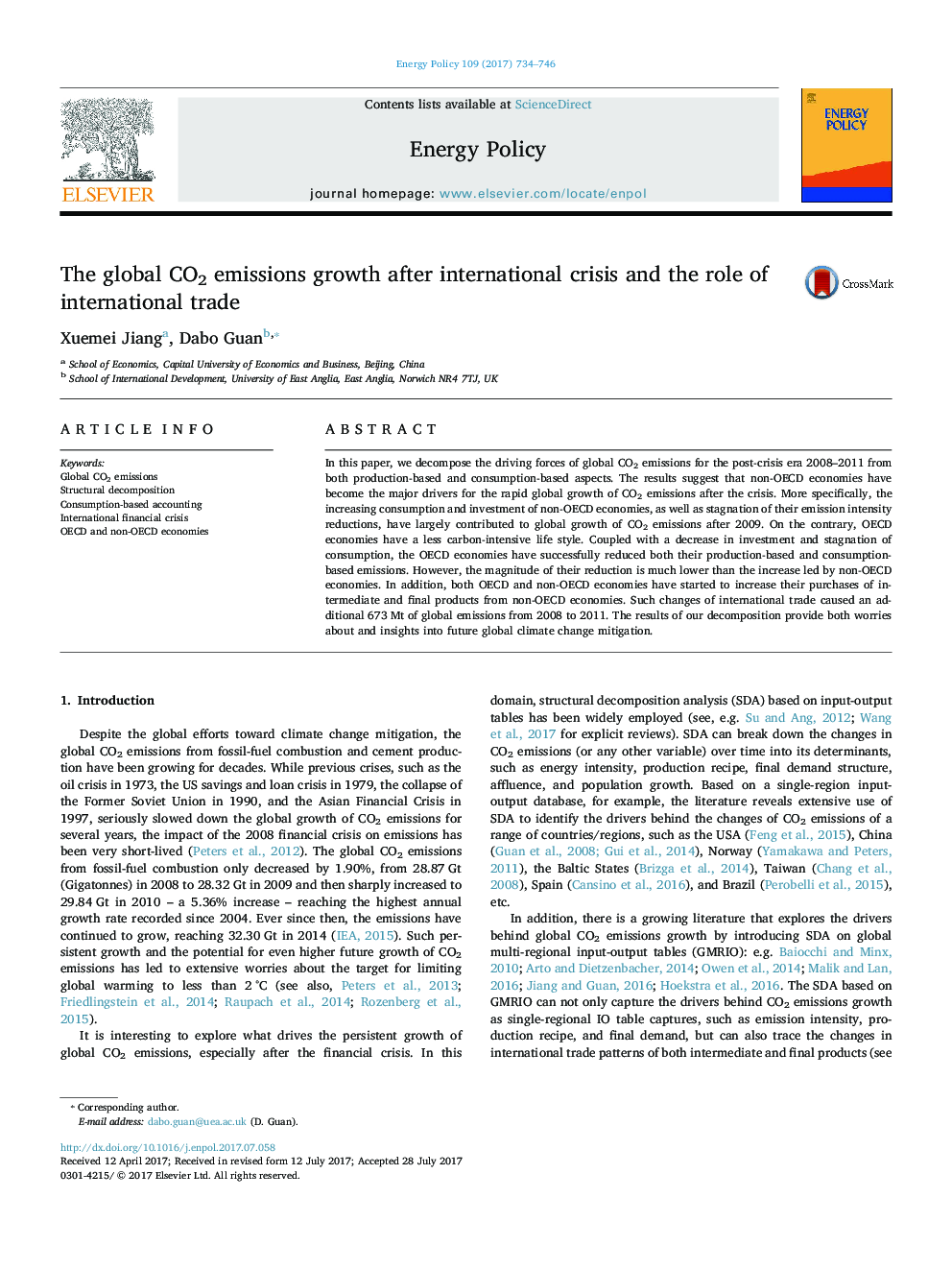| Article ID | Journal | Published Year | Pages | File Type |
|---|---|---|---|---|
| 5105747 | Energy Policy | 2017 | 13 Pages |
Abstract
In this paper, we decompose the driving forces of global CO2 emissions for the post-crisis era 2008-2011 from both production-based and consumption-based aspects. The results suggest that non-OECD economies have become the major drivers for the rapid global growth of CO2 emissions after the crisis. More specifically, the increasing consumption and investment of non-OECD economies, as well as stagnation of their emission intensity reductions, have largely contributed to global growth of CO2 emissions after 2009. On the contrary, OECD economies have a less carbon-intensive life style. Coupled with a decrease in investment and stagnation of consumption, the OECD economies have successfully reduced both their production-based and consumption-based emissions. However, the magnitude of their reduction is much lower than the increase led by non-OECD economies. In addition, both OECD and non-OECD economies have started to increase their purchases of intermediate and final products from non-OECD economies. Such changes of international trade caused an additional 673Â Mt of global emissions from 2008 to 2011. The results of our decomposition provide both worries about and insights into future global climate change mitigation.
Related Topics
Physical Sciences and Engineering
Energy
Energy Engineering and Power Technology
Authors
Xuemei Jiang, Dabo Guan,
